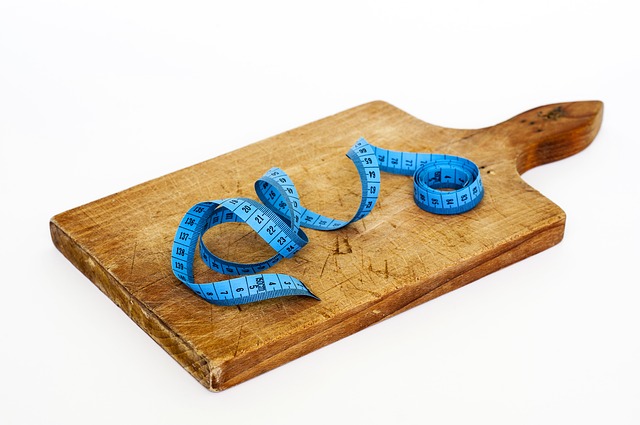
“Counting calories doesn’t work for me, Victor.”
Really?
For most people, undoubtedly, tracking calories is a surefire way to reach their weight-loss goals. It also clearly demonstrates that food selection is not as important as food quantity when weight-loss is the prime objective (read). Doesn’t matter if you base your diet on strictly “clean” or “healthy” foods if you eat too much the scale won’t budge.
But how come some people have success counting calories, while others don’t? There are 4 main reasons I want to address here.
- Tracking accuracy
- Energy expenditure
- Food selection
- Metabolic factors: Hormone balance, gut microbiome, vitamin and mineral deficiencies
This is why counting calories doesn’t work for you
-
You’re not tracking your intake accurately
How diligent are you with your food tracking? This is probably the foremost reason people fail to see results despite monitoring their energy intake. As with anything in fitness (or life, for the matter), half-assing it won’t cut it.
Weigh every ounce of food, measure every fluid, every breadcrumb for 2 months. Then and only then you can slowly loosen up and start eyeballing quantities and portions.
Put in the work if you want worthwhile results. There’s a German saying I’ll leave you with: “Von nichts kommt nichts!”
-
You miscalculate your energy expenditure
We underestimate the amount of food we eat and overestimate our physical activity and energy expenditure. (read)
I was always puzzled by the ability of treadmills or any other device to tell me how many calories the body was burning during a particular activity. While some devices have been proven to be somewhat precise, I would advise against using them. It overcomplicates the process and in practice just doesn’t work.
Forget about tracking your energy expenditure and focus on maximizing your food tracking accuracy. Create the energy deficit with your diet, not your physical activity.
-
You eat the wrong foods
 I got in the best shape of my life eating the foods I love every single day (boy, I must have the greatest genetics). And I believe in order to be successful in the long run, you should be enjoying every single bite of your meals.
I got in the best shape of my life eating the foods I love every single day (boy, I must have the greatest genetics). And I believe in order to be successful in the long run, you should be enjoying every single bite of your meals.
Regardless, if you’re trying to lose weight or bulk up, only eat the foods you truly like. Pick the foods that fill you up and keep you satiated until your next meal. As long as you base your nutrition on whole foods, you’re good.
Adjust the portion sizes but don’t go eating magic diet foods or drinking weight-loss shakes (what the…?). Not only will this keep you sane while you eat less, it will also produce better results.
Also, experiment with the carbohydrate and fat content of your meals. Is a higher fat, lower carb diet right for you? Do you feel better eating a high-carb diet? Figure this out. This is critical for your success and well-being.
Your body will tell you if a food is right for you. If you feel lethargic or bloated post lunch, adjust your meal composition and portion size. Indigestion and water retention are also signs of food intolerance and digestive issues. Suffering from constant hunger and cravings? Poor food selection is the culprit. Make educated choices!
-
Metabolic issues: Hormone imbalance, vitamin and mineral deficiencies, gut microbiome
This goes hand in hand with the aforementioned erroneous food choices. Most people walking around today suffer from a whole host of metabolic issues. Sedentary lifestyles, overeating, antibiotics, oral contraceptives, food processing, pesticides, plasticizers, and other endocrine disruptors,…I could go on all day.
If you suffer from chronic health issues, chances are your hormones are already out of whack. Hormones, among other things, regulate your appetite and eating behavior. A chronic imbalance will make losing weight more difficult, but not impossible(!). You will have to adjust your diet and lifestyle accordingly.
Your diet has the biggest influence on your hormonal health.
You’re probably somewhat familiar with gut bacteria and its role in human health. But there’s far more to it than most people realize. The microbiome inside your digestive system regulates your hormones and vice versa. Your immune system, metabolism, and general physiology are governed by the bacteria in your gut (read, read).
“It is indeed striking that a common theme associated with diseases or conditions as diverse as obesity and inflammatory bowel disease is the substantially reduced microbial complexity as compared with the intestinal microbial communities of healthy subjects.” (Tilg/ Kaser, 2011)
What’s the solution to these metabolic challenges? Eat real food (in the right amounts!), get some sunlight and don’t sit on your ass all day. Yes, it is that simple.
“I always fall back to my old weight, no matter what I eat.”
The “set-point theory” looks at the individual’s inability to lose weight from an evolutionary perspective. Failing to trim down despite decreasing energy intake and increasing your physical activity? It might be because your body’s gravitating towards a predetermined set-point (Anderson et al, 2001).
“That’s it!! I’m fat because of genetics,… or evolution, or… something.”
Not so fast there, buddy. While it is true that the body has a preferred bodyweight, this preference can be easily adjusted by manipulating your diet and lifestyle.
“But counting calories is unnatural! Do you think our ancestors gave a damn about a calorie?”
Good point. And no, I don’t think our ancestors were concerned with the energy value of their food. But if you’re going to point out the behavioral differences between today and the “pre-calorie” era you might as well cover some additional aspects – Lifestyle, activity levels, food availability/ quality/ quantity.
Context, context, CONTEXT!
Our ancestors didn’t have immediate and constant access to high-energy foods. They did, however, have higher activity levels and thus higher daily energy expenditure. Our ancestors also routinely went for periods without food (unthinkable for modern man to skip a meal…).
They lived closer to nature if you will. But since you’re sitting at your office desk all day and eating microwave meals, you need to apply different standards.
What’s the alternative to counting calories?
Food restriction. If counting calories is not for you, you need to cut out certain foods. Why? Because you have to lower your calories somehow.

You might think you’re losing weight because you’ve cut out dairy, wheat, and sugar from your diet and these evil foods somehow cursed you with your excess pounds. But in reality, all you did was cut out a lot of high-energy foods, fast foods and most processed junk (walk down the snack aisle and look for sugar and wheat free options… enough said) and thus dramatically lowered your energy intake.
This is also the sole reason why restrictive dieting templates initially get you results. They cut out a large portion of your daily calories by limiting your food choices. Doesn’t matter how you look at it, as long as you drop your calories, you will lose weight.
Stop eating carbohydrates= initial weight-loss. Stop eating wheat and dairy= initial weight-loss. Stop eating burgers and chocolate= you’re doing it wrong.
It’s the energy deficit that’s getting you to lose weight, regardless of how you go about creating that deficit.
Sorry to be the bearer of bad news, but your diet guru and your fitness role models have lied to you.
And to those thinking that counting calories is too radical or borders on an eating disorder, look at it as a temporary assignment. I don’t want you to track your foods indefinitely. Most people will need 2-3 months to figure out how much they can eat/ get away with, while still getting results. 2 months of meticulously tracking every single bite and sip. Use this time to get know and understand your body better. How much food do you really need?
After that period you should have an idea of how many calories you need and then you can simply eyeball portion sizes (I haven’t tracked my food in over 2 years). It’s a cake walk at this point.
What are 60 days of tracking your diet compared to a lifetime of uncontrollable weight fluctuations, uncertainty, and frustration?
There are some obvious shortcomings to the concept of counting calories, but it still remains the best option we have. Take it for what it’s worth.
Thank you for reading
Victor
Resources:
Anderson, J.W./ Konz, E.C./ Frederich, R.C./ Wood, C.L. (2001). Long-term weight loss maintenance: a meta-analysis of U.S. studies. Am. J. Clin. Nutr. 74, 579–584.
Austin, J./ Marks, D. (2009). Hormonal Regulators of Appetite. Int J Pediatr Endocrinol.
El-Amrawy, F./ Nounou, M.I. Are Currently Available Wearable Devices for Activity Tracking and Heart Rate Monitoring Accurate, Precise, and Medically Beneficial? Healthc Inform Res. 2015 Oct; 21(4): 315–320.
Hartmann-Boyce, J./ Johns, D.J./ Jebb, S.A./ Aveyard, P. Effect of behavioural techniques and delivery mode on effectiveness of weight management: systematic review, meta-analysis and meta-regression. Obes Rev. 2014 Jul;15(7):598-609.
Hill, N.E./ Fallowfield, J.L./ Delves, S.K./ Ardley, C./ Stacey, M./ Ghatei, M./ Bloom, S.R./ Frost, G./ Brett, S.J./ Wilson, D.R./ Murphy, K.G. Changes in gut hormones and leptin in military personnel during operational deployment in Afghanistan. Obesity. 2015 Mar;23(3):608-14.
Lichtman, S.W./ Pisarska, K./ Berman, E.R./ Pestone, M./ Dowling, H./ Offenbacher, E./ Weisel, H./ Heshka, S./ Matthews, D.E./ Heymsfield, S.B. Discrepancy between self-reported and actual caloric intake and exercise in obese subjects.N Engl J Med. 1992 Dec 31;327(27):1893-8.
Schwiertz, A./ Taras, D./ Schäfer, K./ Beijer, S./ Bos, N.A./ Donus, C./ Hardt, P.D. Microbiota and SCFA in lean and overweight healthy subjects. Obesity. 2010 Jan;18(1):190-5.
Strasser, B./ Spreitzer, A./ Haber, P. Fat loss depends on energy deficit only, independently of the method for weight loss. Ann Nutr Metab. 2007;51(5):428-32.
Tilg, H./ Kaser, A. Gut microbiome, obesity and metabolic dysfunction. J Clin Invest. 2011 Jun 1; 121(6): 2126–2132.
[…] a more moderate weight-loss routine instead. Allow yourself to eat a variety of foods while tracking and controlling your intake. Increase the amount of daily activity, and if you really want to take this to the next level, […]